profile badges
recent achievements

Gave My First Grade
Grade a gamer's review or tip by clicking "Yes" or "No" in response to the question "Was this helpful?"
Grade a gamer's review or tip by clicking "Yes" or "No" in response to the question "Was this helpful?"

Reviewed My First Game
Submit a game review
Submit a game review

My First Heart
Show your loyalty for a game by clicking the "Heart" button on a game page.
Show your loyalty for a game by clicking the "Heart" button on a game page.
I'm a Real Person
Select an avatar via the edit profile page
Select an avatar via the edit profile page
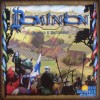

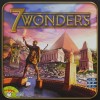
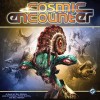



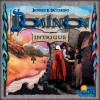







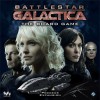









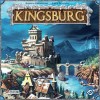
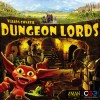

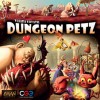



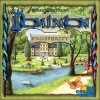

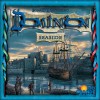

7 Wonders
Intro:
I didn’t have the chance to play more than 3 games before leaving for another city. I then bought it upon arrival, having been left with such a craving to further plumb its depths. Supporting up to 7 players, it manages the feat of having no down-time between turns, which is difficult among thought-intensive games such as this. It achieves this feat by having all players playing their turns at the same time.
Premise:
Each player has a wonder, and a civilization around it. Your goal, as leader of Alexandria, Ephesus, or Babylon, etc is to construct the stages of our wonder (Lighthouse, Parthenon, Hanging Gardens, etc) and build other buildings and structures to gain points and resources. In each of three ages, all players are given a hand of 7 cards. They select one card, build it using the resources from previously built cards, and pass the hand on to the next player, while simultaneously receiving a hand from their other neighbor.
Learning:
With straightforward steps, and short turns, this game is exceedingly simple to dive into. I recommend for the first game, giving a brief into, going over how to select cards, and whit resources are needed to build things, and then just starting. I find it much easier to explain once players have a civilization they’re invested in, with real structure already build, so the strategy talk can wait until Age II.
After the mechanics are out of the way, and players have started building and gaining points, start talking about the different paths to victory (Military, Science, Beautification, Trade, Wonder, etc) and conclude by showing them the Age III Cards that give huge bonuses for various structures your neighbors have.
Length:
The game takes as long as it says on the box, about 30min. This is short and satisfying, and because of the concurrent turns, there is more real game time packed into these 30 minutes than in some games of 2 hours.
Depth:
With the myriad paths to victory you can take (and combine), the game offers significant variety between replays. Each wonder is different, giving different bonuses for each stage, and offering different point values for completion, and each player will have to dedicate themselves to a strategy for each game, depending on the starting conditions.
The game does not have the variety of something like Dominion, but it is still above many others for replay value.
Expansions:
There is one expansion out as of now, Leaders, which adds characters to the game which either have one-shot effects when you recruit them, continuous effects such as increased resources or reduced costs, or are worth points at the end of the game. It adds significantly to the game, though doesn’t change it completely.
Conclusion:
Buy It. 7 Wonders offers a unique perspective on strategy/building games, and will make a great addition to a rotation including such games as Dominion and Race for the Galaxy. I would say try Dominion first if you don’t already have it, but really you will want both eventually.